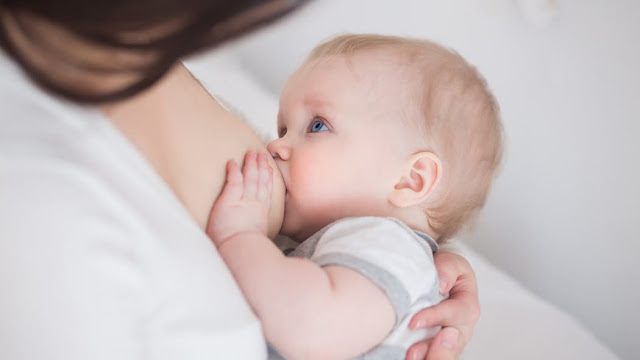Is there a link between breastfeeding and breast cancer?
Many pathologies can cause a painful mass in the breasts at the time of breastfeeding. If cancer cases are rare, it is important to monitor these symptoms and talk to a doctor if in doubt.
Breastfeeding women are often very aware of what is happening to their breasts, and usually notice any physical changes, however small. However, some lumps that form during lactation can alert them, and make them fear breast cancer. While it is normal to be vigilant and very attentive to any symptoms, and even if it is possible to develop breast cancer during breastfeeding, this scenario is rare. Breastfeeding women account for 3% of breast cancer cases, according to Medical News Today.
According to the American Cancer Institute, some research suggests that the risk of breast cancer is temporarily higher in the years following pregnancy and childbirth, perhaps because of hormonal fluctuations. Overall, however, breastfeeding reduces the risk of breast cancer, especially in premenopausal women. Indeed, the months of pregnancy and lactation decrease the number of menstrual cycles of a woman during her life. It also reduces its exposure to hormones that can increase the risk of certain cancers.
If you notice a lump that does not go away, increases, does not move when touched, or causes an orange peel-like effect on the breast, make an appointment with a health professional. If it is actually a breast cancer, various treatments can be offered, including surgery, chemotherapy or radiotherapy. Your doctor will help you determine which treatment will be most appropriate for the stage of the disease, and whether breastfeeding is possible or not.
According to the American Cancer Institute, some research suggests that the risk of breast cancer is temporarily higher in the years following pregnancy and childbirth, perhaps because of hormonal fluctuations. Overall, however, breastfeeding reduces the risk of breast cancer, especially in premenopausal women. Indeed, the months of pregnancy and lactation decrease the number of menstrual cycles of a woman during her life. It also reduces its exposure to hormones that can increase the risk of certain cancers.
Consult a professional
Despite these rather low risks, it is essential to consult a doctor if you have any doubts about breast health. In the event of a negative diagnosis, the doctor will be able to verify the presence of other pathologies such as breast engorgement, when the breasts are too full of milk, the blocked milk ducts, when the retention of milk forms a painful mass, a breast inflammation, an abscess or cysts.If you notice a lump that does not go away, increases, does not move when touched, or causes an orange peel-like effect on the breast, make an appointment with a health professional. If it is actually a breast cancer, various treatments can be offered, including surgery, chemotherapy or radiotherapy. Your doctor will help you determine which treatment will be most appropriate for the stage of the disease, and whether breastfeeding is possible or not.



Commentaires
Enregistrer un commentaire